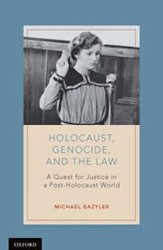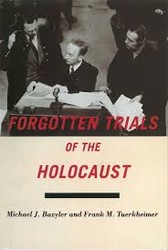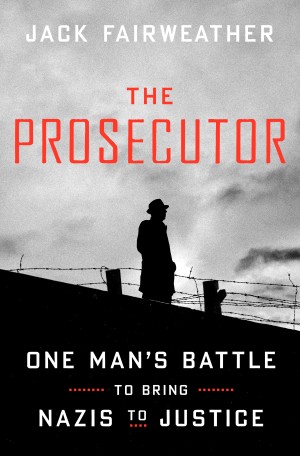By
– January 3, 2012
Crossing Hitler is an important contribution to our understanding of the turbulent years of the Weimar Republic before the Nazi seizure of power in 1933. The brutality of the Nazis and the Communists both toward one another and toward the democratic Weimar government is told through the brief but tragic life of Hans Litten, the son of a Jewish convert to Christianity who, because of his estranged relations with his father, embraced his Jewish ethnicity from his teen age years until his death in Dachau.
Hett, Associate Professor of History at Hunter College, has written a riveting account of Litten’s life. A left-wing lawyer with an affinity for defending Communists, and possessed with a strong sense of social justice, Litten was a fervent anti-Nazi. At the age of twenty-nine, Litten represented two Communist workers stabbed by Hitler’s Nazi Storm Troopers. The so-called Eden Dance trial which followed in 1931 is memorable because Litten called Adolf Hitler as a witness and grilled him for two hours, forcing Hitler to make statements that, had it not been for the intervention of the presiding judge, would have resulted in his perjuring himself, possibly leading to a prison sentence. Hett speculates that had Hitler been found guilty of perjury and sentenced to jail time, it might have cost him enough political capital, especially with middle class voters, to derail his political future and possibly alter the events that resulted in his appointment as Chancellor in 1933. Hitler never forgot Litten’s humiliating cross-examination and soon after becoming Germany’s Chancellor in January exacted his revenge against his courtroom foe. In the aftermath of the Reichstag Fire in 1933, the SS arrested Litten, charging him with being an enemy of the state, and sent him to the Sonnenberg concentration camp where he was brutally treated both as a Communist, which was untrue, and as a Jew, which he never denied. Despite world-wide protest on behalf of Litten, and personal appeals by his mother, Hitler refused to pardon him.
Subsequently Litten was transferred to several other concentration camps culminating in Dachau where in 1939 he committed suicide. Through his biography of Litten, Hett focuses on the broader themes of the criminal justice system in Weimar Germany, the intersection of politics and anti-Semitism, the brutality of the Nazi concentration system in the pre-war years, and “how the rule of law collapsed in the 1930s.”
In 1988, two German organizations, the Association of Democratic Lawyers and the Republican Lawyers’ Association, began In 1988, two German organizations, the Association of Democratic Lawyers and the Republican Lawyers’ Association began awarding a biennial Hans Litten Prize to lawyers who distinguish themselves through work for human rights, and who stood for a courageous defense of democracy and law. The irony surrounding the award, states Hett, is that in the words of his close friend, Max Furst, Litten was “against democracy, who thought no useful politics could be conducted by voting, and who voiced nothing but contempt for the Weimar Republic.”
Jack Fischel is professor emeritus of history at Millersville University, Millersville, PA and author of The Holocaust (Greenwood Press) and Historical Dictionary of the Holocaust (Rowman and Littlefield).





